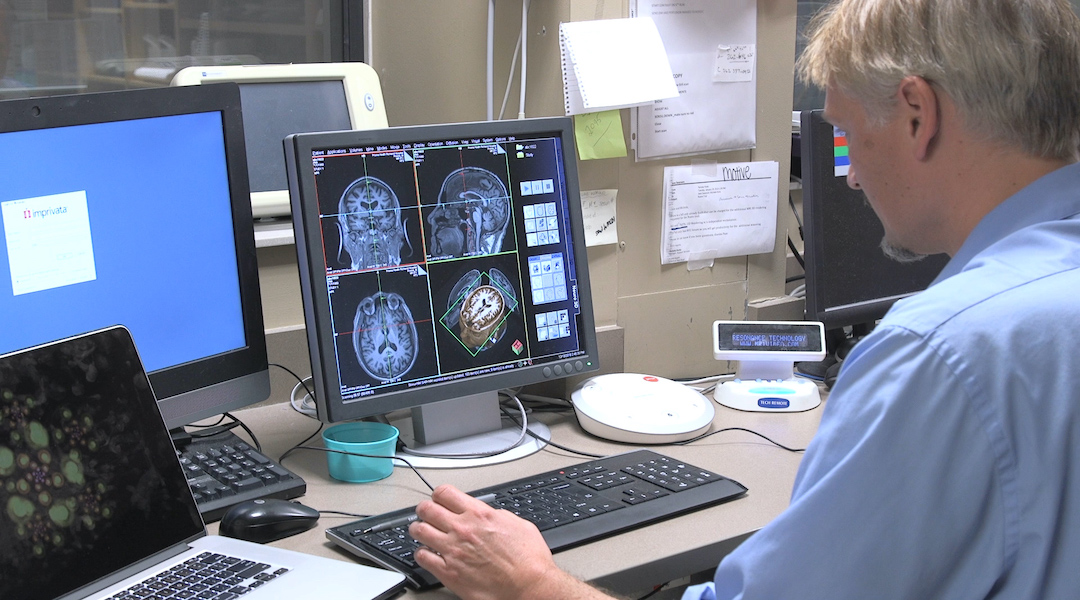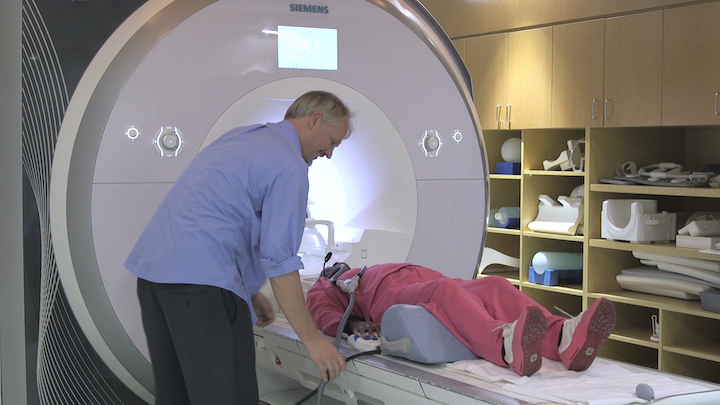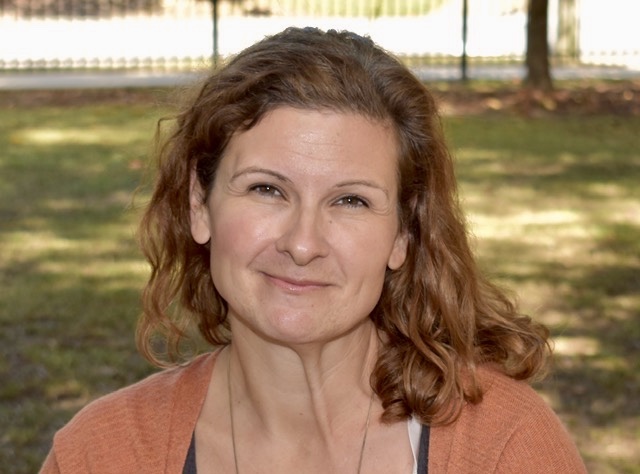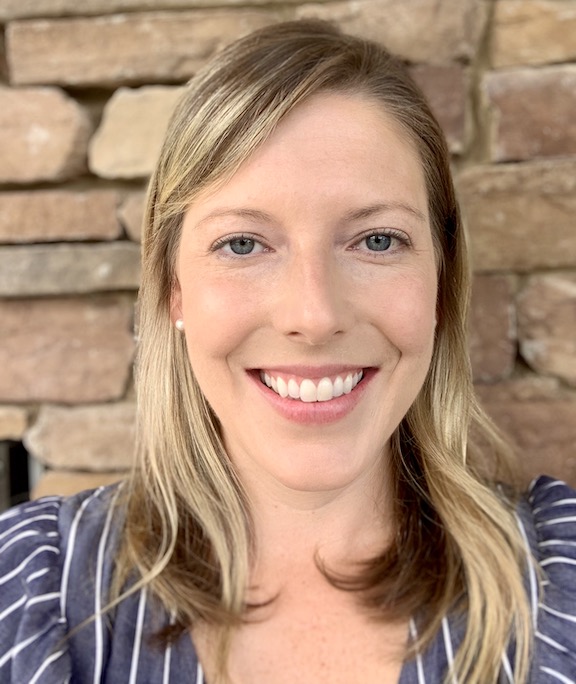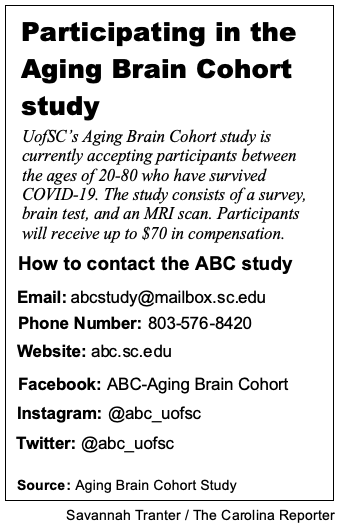A researcher with the Aging Brain Cohort study looks over a participant’s MRI scan. Photo credit: Grant Jackson, UofSC
Researchers with the University of South Carolina’s Aging Brain Cohort Study are investigating how COVID-19 affects the brain long after a negative test result.
In connection with Palmetto Health-USC Medical Group Division of Infectious Diseases, the ABC study is looking for 100 participants between the ages of 20 and 80 who have survived COVID-19. So far, the study has enrolled more than 60 participants since starting in September with a goal of reaching 100 before the year ends.
Sara Sayers and Sarah Newman-Norlund are two of the study leaders for the ABC. The study consists of three parts: a survey questionnaire, virtual brain test with brain games and an MRI scan.
As the study first started, Newman-Norlund and Sayers were able to meet participants in person to conduct the brain test portion of the study, but now everything is done virtually, except for the MRI.
“There is a lot of different research going on now in the U.S. to look at [how coronavirus affects the brain], and part of it is also driven by people reporting that they feel like they have a brain fog,” said Newman-Norlund.
Newman-Norlund said many participants reported feelings of fogginess and a shorter attention span after contracting COVID-19.
“One of our purposes is to get at what are people reporting, what are the things that we can characterize about them and their experience that might be leading to some people having this experience and some people not having this experience,” said Newman-Norlund.
Sayers said the study collects a massive amount of data.
The questionnaire is “a huge compilation…that collects personal history to their symptoms,” Sayers said. “We also have a PTSD checklist that the VA (Veterans Affairs Hospital) uses. We also have some surveys on social relationships to access to resources, sleep quality to physical health.”
Sayers also said the study uses an “odor identification test,” which is a scratch-and-sniff card with different smells that is sent in the mail to the participants who have reported loss of smell that hasn’t fully returned.
Elayne Bauer, a 25-year old recent graduate of UofSC, tested positive for coronavirus on July 14. Both she and her fiancé were infected with coronavirus after a trip to the beach, and they were participants in the ABC study in September.
Bauer said the study happened fairly quickly as she completed the brain test assessment Sept. 29 and her MRI was Sept. 30.
“Right after being sick, it messed with me mentally and emotionally. I definitely felt really spacey and forgetful and just foggy and generally confused,” Bauer said.
“I felt ashamed of having gotten sick because we have tried so hard to not get sick. We’re very diligent about social distancing, mask wearing, personal hygiene. We got sick due to the negligence of close family friends,” said Bauer.
Bauer said most of her brain fog and confusion is gone, but she still feels like she has less stamina and endurance since getting over COVID-19.
A female participant is prepared for the third and final stage of the ABC study, an MRI scan to look at their brain. Photo credit: Grant Jackson, UofSC
The ABC study uses MRI scans to evaluate the participants’ physical brain health. Photo credit: Sarah Newman-Norlund
Sarah Newman-Norlund, one of the top researchers with the Aging Brain Cohort Study, has a background in cognitive and neuroscience research. Photo credit: Sarah Newman-Norlund
Sara Sayers has a background in speech-language pathology. She and Newman-Norlund work closely together on the ABC study. Photo credit: Sara Sayers

